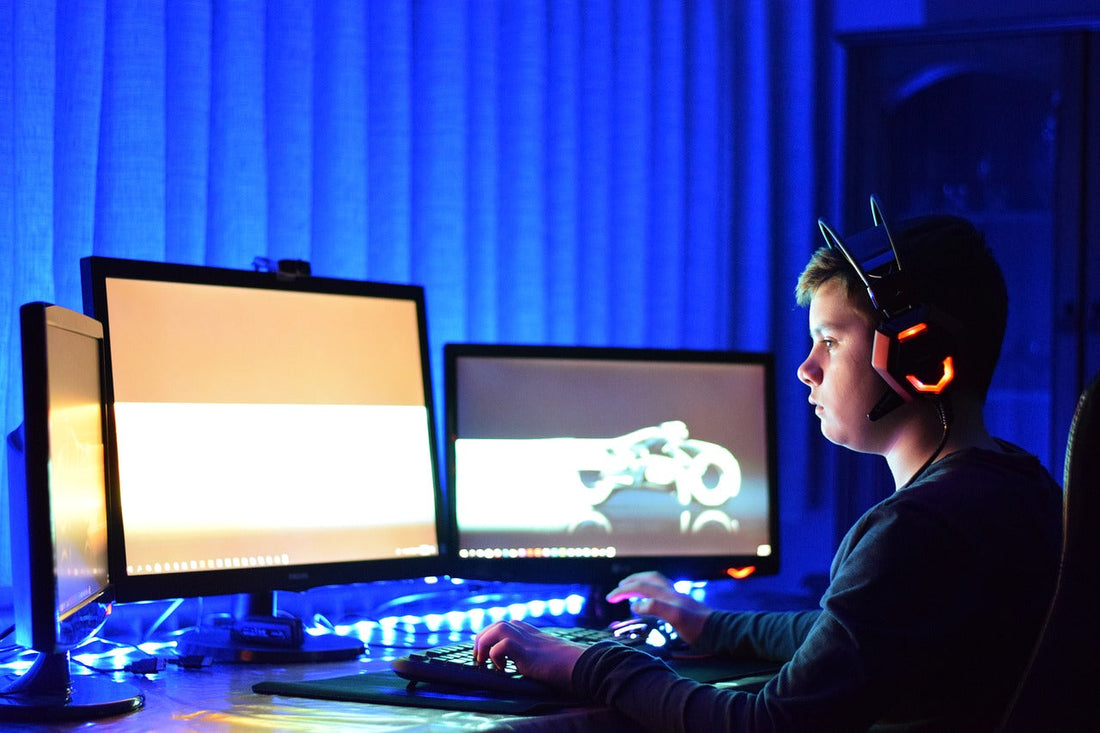Sometimes your gaming PC can underperform, and that can be quite disappointing. No matter what problem your gaming PC may have slow speeds, crashes, or graphical problems you want to be able to resolve them quickly and efficiently.
Most problems can be fixed easily if the right information and strategy are applied; therefore, it is more costly to carry out repairs. Below is a list of five easy suggestions that will help you troubleshoot most problems on your gaming PC.
1. Check for Overheating
One of the easiest issues to encounter on your gaming PC is overheating. If you’re pushing your CPU or GPU, the temperatures can climb high, and your system may simply shut down or slow down. To avoid cases of overheating, make sure that your gaming PC is always placed in a room with proper airflow.
For instance, if you are struggling with system shutdown or losing frames during a gaming session, you use a temperature monitoring software. If the temperature is high, try removing dust from your fans and reconsidering thermal paste on your CPU.
Pro Tip: Try to keep your gaming PC on a sturdy table or desk and make sure you have airflow around your new PC.
2. Update Your Drivers
A performance issue that old drivers cause includes crashing, tearing of the screen, and reduced frame rate. It is recommended that you always ensure the drivers of your graphics card, your motherboard, and other peripherals are updated. Now and then, manufacturers come out with new updates that can enhance the speed and eliminate a problem that could affect gameplay.
Go to the main sites of the components of your gaming PC to get the recent drivers. However, you can also adopt the use of tools that enable you to have driver detection and installation on your system.
Pro Tip: Engage in auto updates of drivers so that your system always updates without the need for a manual update.
3. Test Your RAM and Storage
If your gaming PC is running slow or tends to crash, there are problems with both your RAM and storage that you need to look into. Bad RAM and a full hard disk do not bode well for one’s PC performance. On Windows you can use such tools as Windows Memory Diagnostic for checking your RAM for any errors.
Furthermore, always check out your storage drive for bad sectors as well as for fragmentation. It looks very horrible when your storage drive is nearly full; you should free up some space.
Pro Tip: Booting is faster, and the game loads faster when an SSD is used. For those who still employ an HDD, a migration to an SSD is going to be a huge leap forward.
4. Reinstall your operating system
There are cases when the root of the performance problem lies within the operating system. Sometimes, if your gaming PC has slowed down or been freezing, a fresh installation of Windows or the operating system can fix that. It is highly recommended that you make a backup of all the files and data to avoid loss during the reinstall.
Now, you should try to install the OS from a fresh image and then get your games and software installed. This will re-establish your system and can fix problems due to damaged files or conflicts with other software.
Pro Tip: There are also third-party disk cleanup utilities that you may employ to clean up as much space as possible before Osama reinstalls her OS.
5. Get Professional for Gaming PC Repair
If the above steps do not help to address your concerns, it may be helpful to consult a professional at this point. A computer technician who specializes in gaming PCs can work on some of the internal problems that can cause your system to fail. Whether it is a faulty power supply, a problematic graphics card, or any other component, professional repair services will help get your gaming PC back on track.
Pro Tip: It is always recommended to go for some trusted service providers for Gaming pc repair. Search for those companies that have experience in dealing with gaming systems and have a good record.
Conclusion
It’s quite easy and quite fun to troubleshoot your own gaming PC if you follow the steps mentioned above. Follow the steps given below to optimally utilize your PC: Monitor the temperature and change drivers when needed; test and guarantee the efficiency of RAM and storage.
However, if the situation is like this, then seeking the services of a professional in terms of gaming PC repair is the most appropriate thing to do. For professional help, visit Terabytes Electronics, as only professional technicians can fix a gaming PC that has been giving you trouble!
Terabytes Electronics provides high-end Gaming pc repair and much more, so call us today!

